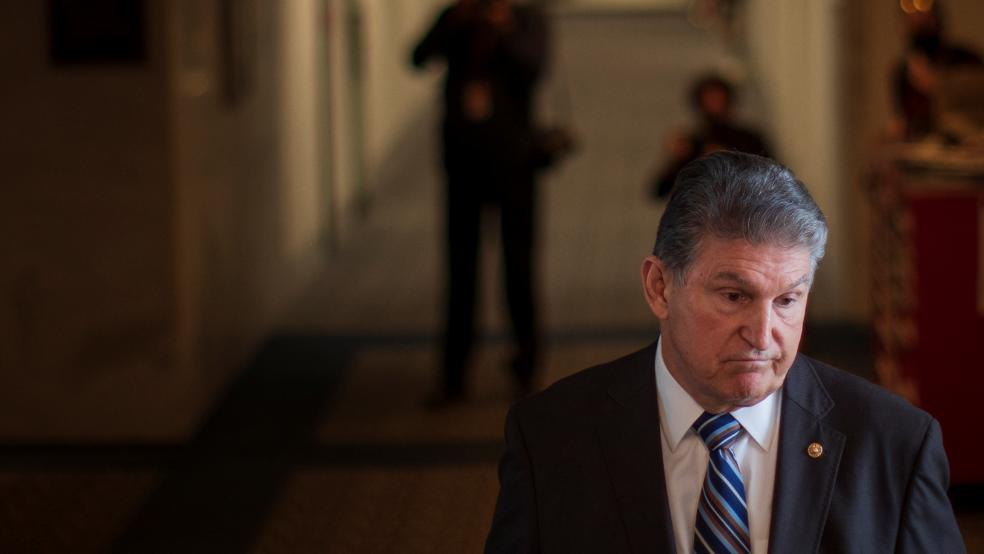BBB is Democrats’ abbreviation for their Build Back Better Act, but right now the initials might as well stand for Bill on the Back Burner.
We told you yesterday that President Biden and White House aides had reportedly spent part of their holiday recess in talks with Senate Democrats on resurrecting their package of social spending, climate programs and tax changes. But whatever talks have gone on appear to have produced no progress and any talks involving holdout Sen. Joe Manchin are now on hold, the West Virginia centrist told reporters Tuesday.
"I’m really not going to talk about Build Back Better anymore because I think I’ve been very clear on that. There is no negotiations going on at this time,” Manchin said. He went on to say that he remains concerned about the same issues that led him to come out against the bill, from the unknown course of the pandemic to inflation to geopolitical unrest that might require additional resources. “I feel as strongly today as I did then,” Manchin said, later adding, “Our country is divided, and I don’t intend to do anything that divides our country any more.”
Open to climate provisions: Manchin told reporters that parts of the House Build Back Better bill are a “far reach” and suggested that focusing on the climate portions of the legislation might be most productive. “The climate thing is one that we probably could come to an agreement much easier than anything else,” he said.
A Biden administration official told Politico that they would not “comment about any individual member, but we continue to be engaged with a wide range of senators about advancing the President’s Build Back Better” plan.
Maybe in March: With an uncertain path forward on Biden’s economic and environmental agenda, Senate Democrats are instead prioritizing plans to debate voting rights legislation this month and consider changing the Senate’s filibuster rule if Republicans block the elections bill. “We’re focused on voting rights as we should be and I think the White House is joining us in that effort and clearly we’ll return to Build Back Better as soon as that’s done,” Senate Majority Whip Dick Durbin (D-IL) told reporters.
That means the Build Back Better plan likely faces weeks or months of limbo.
After Manchin announced in a Fox News interview last month that he was a “no” on the bill, Senate Majority Leader Chuck Schumer (D-NY) issued a statement in a fit of pique saying that the Senate would consider the legislation “very early in the new year so that every member of this body has the opportunity to make their position known on the Senate floor, not just on television.”
Schumer said this week that he still intends to hold a vote in the Senate. “The negotiations will continue with members of our caucus and with the White House on finding a path forward on Build Back Better,” he said. “As I mentioned before Christmas, I intend to hold a vote in the Senate on BBB and we’ll keep voting until we get a bill passed.”
Yet Democratic aides say that package won’t be ready to come to the Senate floor until March or later and may have to be completely reworked, The Hill’s Alexander Bolton reports, adding that Schumer has told colleagues that he doesn’t want to make Manchin to vote on the bill before he supports it.
Lawmakers will also have to pass a government funding bill by the middle of next month, as the stopgap extension passed last month expires on February 18.
That all leaves Democrats back at the drawing board on a major portion of the agenda, with significant changes likely and lots of questions about just what Manchin might back. “I believe he’s open to getting to a compromise and getting something done,” Rep. Ro Khanna (D-CA) told CNN about Manchin. “We need to engage him in good faith. We need to have a dialogue with him and the White House and we need to see what can we agree on to deliver for the American public. I understand it’s not going to be what we passed in the House. We’re going to have to compromise, and I’m open to doing that.”





